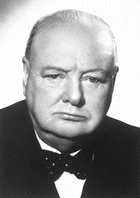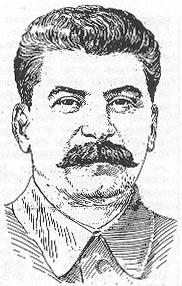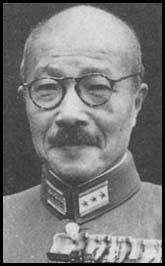Leaders!
This is coolbert:
Much has been made in the current Presidential election about the war [Vietnam] records of the prospective candidates.
This is supposed to be a character issue. What you did over thirty years ago now is supposed to demonstrate your fitness for being President. Or so it is presented as.
And one would have to ask whether this is an important issue or not? Military service would have to be said to be a plus when considering whether or not a candidate passes "Presidential muster [qualified to be President]". Especially at a time of war or with the constant threat of terrorism as we have present now. A plus yes, but probably not a big plus.
Let us look at the military service records of the heads of government of the various warring parties from World War Two and see how those officials stack up in this area. Did military service prior to the Second World War prepare any of these leaders for the conflict they presided over?
Franklin Delano Roosevelt did not actually serve in the military in any capacity. He was Secretary of the Navy [actually an assistant?] during World War One during the administration of Woodrow Wilson.
From his experience as Secretary of the Navy Roosevelt was said to have a special love of the Navy and doted upon it, listening carefully to Admirals and such and preferring their military advice over those of the Army generals. As in most things Roosevelt did in his life, he possessed the dubious belief that a talented amateur, having the right amount of drive, energy, and "pluck", could do the job as well, and perhaps even better than the professional. Some persons however, considered Roosevelt to be a dilettante who dabbled in affairs for which he no business getting involved in.

Winston Spencer Churchill was a military man. A graduate of the Royal Military Academy [Sandhurst], a combat veteran on the Northwest Frontier [Afghanistan] the Battle of Omdurman [Sudan], and the Boer War. Churchill was not only military, but had seen limited combat action. During World War One, Churchill served as First Lord of the Admiralty, and oversaw the British Navy. Churchill was relieved from this position after the debacle at Gallipoli.
Joseph Stalin did not have any military experience, even though he attempted on many occasions to present himself as a great military man. He was rejected for military service during World War One as being physically unfit [he had webbed feet, a sign of the devil]. Made suggestions that were adopted during the Russian Civil War [armored trains]. But was never involved in combat [was a Politburo member]. During World War Two presented himself as a generalissimo, but had no great military mind, even though he again presented himself as a genius.
Benito Mussolini had extensive military combat experience and was decorated for battlefield heroics. Was a minor officer in the Italian Army in World War One and did see a lot of combat. But beyond this, no additional military experience, although what he did have was considerable at a low echelon.
Adolph Hitler did have extensive military experience in World War One. A volunteer in a Bavarian regiment when the war started, Hitler served all throughout the entire war at the front. Mostly in the capacity of runner. Carrying messages from one command post to another. He was decorated for one such mission, although the exact details are debatable. Hitler did have an objectionable but somewhat justifiable habit of mocking his Generals, saying, "I know more about war than any of you put together". And this was true, as was mentioned in a prior post, members of the General Staffs of the combatants were prohibited by law from being at the front.
Hideki Tojo was a military man, a General, the son of a General, and head of the military clique that had been ruling Japan prior to the entry of Japan into World War Two. Tojo's career progressed in pretty rapid military fashion, from brand new commissioned lieutenant rising over time to the rank of General. Was the boss of bosses in the ruling military clique. Of all the leaders of the warring powers in the Second World War, Tojo would seem to be the one most uniquely qualified to lead in a military capacity.
"After World War I, he became an exponent of the theory of total war. As head of the mobilization section of the war ministry, he played an important role in drafting the first general mobilization plans of the imperial army. Committed to the principle that Japan's military strength must be rooted in a developed industrial economy, Tojo urged in the early 1930's the reorganization of the army and, at the same time, the integration of the resources of Manchuria with the economy of Japan.
His remarkable abilities as a staff officer led to rapid promotion . . . In July 1940, as minister of war, he drafted new mobilization plans that strained diplomatic relations with the United States."
Well there you have it. A pretty mixed bag, isn't it? The one man you would think most suited to run a country at war with a war economy was the head of government of one of the losing powers [Japan].
It would seem that prior military experience does not seem to prepare one for running a government during a time of war. As for the character issue. Well, Stalin, Hitler, and Tojo, seem to be totally devoid of virtuous character, and what character there is seems to be of the wrong type!! Of the two present candidates for U.S. President, John Kerry seems to resemble Benito Mussolini the most, and President Bush seems to resemble Franklin Delano Roosevelt the most, both with qualifiers to the resemblance.
coolbert.

<< Home